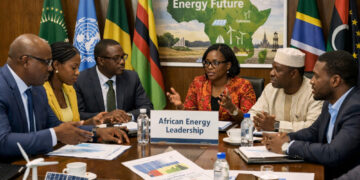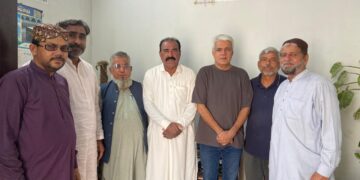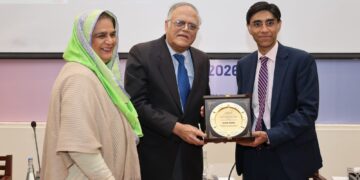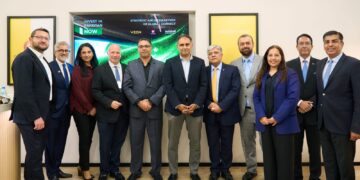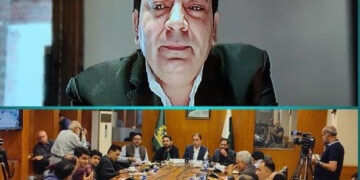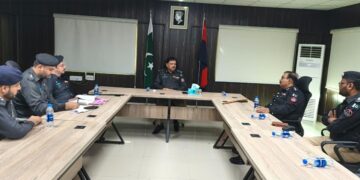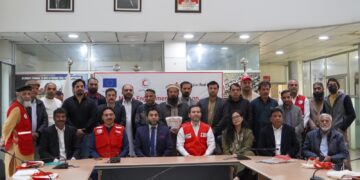Reiterating their commitment to accelerate digital inclusion in the country, Jazz and UNDP Pakistan organized a ‘Girls in ICT’ event highlighting the importance of digital skills for women and promoting Digital Gender Inclusion through enhanced access to ICTs (Information and Communications Technology).


According to the GSM Association (GSMA) there exists a significant digital gender gap in Pakistan where approximately 38% of women are less likely than men to own a smartphone and 49% do not use mobile internet. Furthermore, there are drastic differences in levels of ICT access between different population groups, particularly the rural and marginalised women and girls.
Considering this prevailing scenario, the event included a panel discussion on ‘How to enhance Digital Literacy amongst school-going girls?’ with chief guest SAPM on Youth Affairs Shaza Fatima Khawaja, Additional Secretary of Ministry of IT & Telecommunications Ayesha Moriani, Director Communications and Sustainability at Jazz, Fatima Akhtar, and Founder of AGAHI and Lecturer at NUST Puruesh Chaudhary, in participation. Ideas were exchanged on multi-level solutions towards ensuring safe and meaningful access to digital technology and ICTs for girls.
Speaking at the event, SAPM on Youth Affairs reiterated the commitment of the incumbent government on quality girl education, health, and financial inclusion. SAPM said that the Prime Minister’s Youth Program is ensuring gender parity to ensure maximum engagement of young girls through our hi-tech skills trainings, business loans and gender quotas in the laptop scheme.
“Access, affordability, and lack of literacy remains a core impediment for women’s inclusion in ICT. To further our vision for an inclusive and digital Pakistan, there is an immediate need to facilitate women participation in technology through public and private cooperation,” said Shaza Fatima Khawaja, SAPM Youth Affairs.
Speaking at the event, Jazz CEO, Aamir Ibrahim, said, “Considering the importance of women to lead Pakistan into the future, Jazz has programs in place to enhance digital literacy among girls, maximising women-led enterprises in the startup ecosystem, promoting diversity & inclusion within our workplace besides enabling women to access health, financial, and other life-enhancing services through mobile broadband. It is heartening to see government representatives championing women inclusion in ICT because their support is absolutely necessary to achieve our objectives.”
“The Girls in ICT agenda is an area that UNDP Pakistan sees as a key opportunity for youth and women’s economic empowerment, and we are keen to continue to support this space as we move forward in developing a digital space holding many untapped opportunities for women’s economic empowerment in Pakistan and in the region,” said Amir Goraya, Assistant Resident Representative, UNDP Pakistan.
Numerous students at the event participated in a group activity to brainstorm ideas on promoting inclusion of girls and women in the ICT space. These ideas were then presented to the audience and panel. Aziza Soleh, Founder of the startup MountainShop, a part of Jazz and UNDP’s recently concluded SDG Bootcamp, took to the stage to share her entrepreneurial journey as well.
Jazz is playing a critical role in addressing many of the wider gender inequalities by digitally enabling women to access health, financial, and other life-enhancing services. As part of the GSMA’s Connected Women Commitment Initiative, Jazz has committed to increase the proportion of women by 8 percent in its mobile internet customer base by 2023. Its digital financial service, JazzCash has already met its GSMA Connected Women target two years ahead of time with 22 percent women subscribed to JazzCash wallets. GSMA in its ‘Making internet-enabled phones more affordable in low and middle-income countries’ 2022 Report has also recognized Jazz’s Digit 4G smart feature phone as a successful rollout to address the digital gender gap.
UNDP Pakistan’s Youth Empowerment Programme has been working towards the economic empowerment of Pakistani youth with a particular focus on women and minorities. Some of the initiatives relevant to promoting women in ICT include digiskills training to over 2,000 young girls from KP; supporting the world’s largest annual start-up competition for women and technology, She-Loves-Tech, which has supported over 130 women-led tech startups over the past three years; and supporting Sehat Kahani in training 500 female doctors and 500 nurses and healthcare staff in digital health service delivery.







